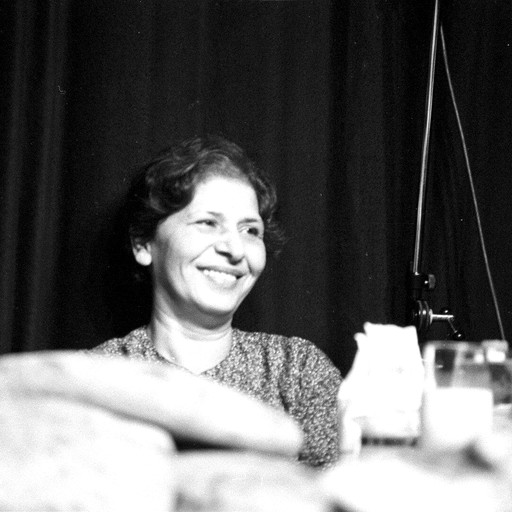Fatma Heinschink (née Zambaklı) was born in Izmir on 6 March 1948. She died in Vienna on 4 August 2017. Her parents and older ancestors were basket makers (Sevlengere Roma) around Saloniki, which was part of the Ottoman Empire until 1913. During the 1920s, many of these families, including Fatima Heinschink’s grandparents, emigrated to the newly founded Turkey of Kemal Atatürk and finally settled in Izmir and the surrounding villages. Some of the families that had remained in Greece, among them relatives of Fatma Heinschink, settled in Volos.
After her mother’s death, Fatma Heinschink had to take care of the children of her siblings who worked, so she was unable to go to school and taught herself to read and write. She listened enthusiastically to all tales, songs and conversations of the grown-ups and adopted, with an exemplary intensiveness and an impressive feat of memory, the legacy of her family, relatives and friends that had been handed down orally. After her marriage to Mozes F. Heinschink, she recounted all her knowledge in more than 100 hours of recordings. This collection of sound recordings comprises all the songs, fairy tales, instructive stories and biographical tales about the members of her community that were known to her.
From 1983 onwards Fatma Heinschink lived alternately in Vienna and Izmir. She was one of the few who still spoke fluently the Romani variant of the once huge community of the Sepečides, from the Turkish for basket-makers) of Izmir and its environs, to which she had belonged. This dialect is one of the many variants of the Romani čhib spoken in Southeast Europe and subsumed under the name ‘South Balkan dialects’. These (Non-Vlax) Romani variants were not influenced by a former contact with the Romanian language. During the past 80 to 90 years, Turkish was the only contact language of the basket-makers in Turkey. It has since become the mother tongue of most of the young basket-makers of Izmir.
(Translation: Petra Cech)




